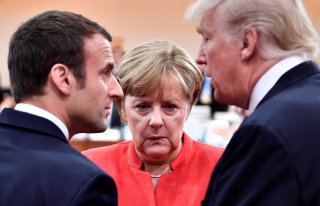The Afterlife of Empire
As we enter an age of great power conflict, imperialism lurks behind the scenes as an organizing principle of geopolitics, difficult as it may be to admit.
Put otherwise, we have always been in an imperial age. It is just that because we have associated imperialism exclusively and for so long with modern European colonialism we have forgotten that imperialism is not necessarily synonymous with the West. The most blatant imperial element of our postmodern age is China’s mercantilist Belt and Road Initiative. The United States can only successfully rise to the challenge of Belt and Road by presenting alternative grand strategies, such as the Trans-Pacific Partnership and re-partnering with Europe: both of which would represent the West’s benign imperial afterlife.
IT IS imperative to recognize that this new imperial age of great power conflict occurs at a time of global demons: pandemics, cyberwar, periodic waves of anarchy in parts of the globe, all demonstrating a world more interconnected and more claustrophobic than ever before. The fortunes of China, Russia, and the United States will, therefore, be tied closely to their ability to steer through this continuing whirlwind. Gone are the days of vast colonial holdings that sprawled across continents with a slower pace of decisionmaking, in which imperial decline could be registered in decades and centuries even, as security gradually deteriorated in the provinces. Nowadays, survival will depend on quick reaction time to prevent a government’s reputation for power from being rapidly undermined.
In the past, empires often disintegrated for internal reasons, such as when irreparable divisions occurred within ruling elites. This is highly relevant for our own time. For example, simply because China’s internal divisions are more opaque than America’s does not mean that they are not as severe. As for Russia, the question may be: is there even a political system that can survive beyond Vladimir Putin? We may all rightly denounce empire. But rarely have the lessons of imperial history been more relevant than in the early and middle decades of the twenty-first century.
Robert D. Kaplan holds the Robert Strausz-Hupé Chair in Geopolitics at the Foreign Policy Research Institute. He is the author of nineteen books on foreign affairs and history, most recently, The Good American: The Epic Life of Bob Gersony, the U.S. Government’s Greatest Humanitarian.
Image: Reuters

